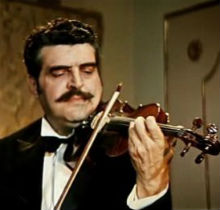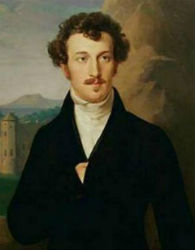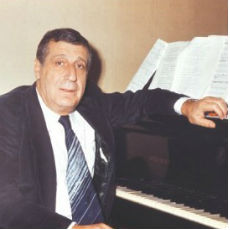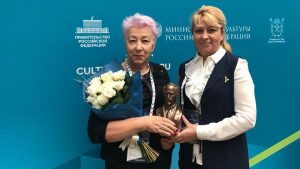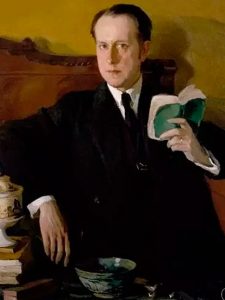The Unsurpassed King of Waltz Johann Straus
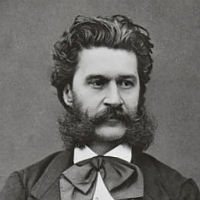 Dance melodies, which were called foot music, were condescending in any era. Operas, oratorios and symphonies were always considered noble genres, while all kinds of quadrille, waltzes and polkas were attributed to second-rate creations because of their entertaining nature. And only one Austrian composer managed to change this musical hierarchy, raising the melodies for dancing to previously unattainable symphonic heights. His name is Johann Strauss. He wrote almost five hundred works. The works of the talented Strauss Jr. sounded in all parts of the world and continue to occupy a leading position in the repertoire of many theaters.
Dance melodies, which were called foot music, were condescending in any era. Operas, oratorios and symphonies were always considered noble genres, while all kinds of quadrille, waltzes and polkas were attributed to second-rate creations because of their entertaining nature. And only one Austrian composer managed to change this musical hierarchy, raising the melodies for dancing to previously unattainable symphonic heights. His name is Johann Strauss. He wrote almost five hundred works. The works of the talented Strauss Jr. sounded in all parts of the world and continue to occupy a leading position in the repertoire of many theaters.
Competing son
The founders of the “waltz dynasty” are considered to be Josef Lanner and Johann Strauss Sr. Their art seemed inaccessible to many. But it was so until their main rival appeared on the horizon. Ironically, they became the composer Johann Strauss, son of Strauss – Johann Strauss Jr., who was born in Vienna on October 25, 1825.
To his eldest son, Johann, his father pledged for the future in the commercial sphere, while the latter, Joseph, defined him for military service. Everything went according to plan, until the father discovered a seditious (in his opinion) passion of his offspring for music. His wife had to work hard to persuade him to allow his sons to play the piano.
Johann fascinated friends with his ability to improvise on a musical instrument. And later, the father found out that the eldest son secretly learns from everyone to play the violin. And besides, he was taught lessons by Franz Amon himself, who was one of the best musicians of the Strauss Sr. Orchestra. Johann taught neighborhood children to play the piano and thereby earned his lessons from Amon.
Top teachers
Soon the Strauss family was faced with a serious test – the father left for one of his young fans, and the maintenance of his family had to be taken over by Johann Jr. This is how he, composer Johann Strauss, appeared as the head of the family at the age of 18. Fortunately, the mother supported her son in everything and, most importantly, took care of his musical education, despite financial difficulties. The mother carefully kept the notes of the first waltz of Strauss, which he wrote at the age of 6. Thanks to the efforts of Anna, Johann studied under the ballet tutor of the Vienna Opera House and the leading teacher of the Conservatory in the composition class. But Johann considered his main teacher one of the Viennese churches, the abbot Joseph Drexler, who was an expert on counterpoint and harmony. It was he who forced the young composer to compose spiritual works. At the time, Strauss Jr. dreamed of “earthly” music, but the teacher did not disobey, and soon his cantata was publicly performed in one of the temples of Vienna.
The wise Drexler found an incentive for Johann to engage in church music. He allowed him to play the organ and violin in the church where he was regent.
Good morning, Strauss son
Once the abbot heard a waltz on the organ performed by Strauss when he entered an empty temple. Johann stood his ground firmly – he wanted to lead a dance chapel and compose the composer Johann Strauss, a scent dancer. It was a matter of “small” – the young man had to find qualified musicians. He could not allow his team to be worse than his father. And one of the Sunday days of October 1844, posters and the city press announced the upcoming concert of the young Johann Strauss. The audience was intrigued, because Strauss Sr. was barely 40 years old, he was still full of creative energy, and then his son was already on his heels. After the concert, the newspapers were filled with rave reviews. Critics wrote: “Good night, Lanner, good evening, Strauss-father, good morning, Strauss-son!”.
Revolutionary sympathies
The young composer did not just take it, but snatched the baton from the hands of his predecessors. And although his first works differed little in form by the composer Johann Strauss, the son of the melodies of his father and Lanner, but they already had the power of talent.
When the revolutionary year of 1848 came, Johann eagerly responded to political events and supported the people. He created the Revolution March, which sounded like a call to fight. This music quickly became the most popular work of the rebels, having received the second name – “The Vienna Marseillaise”. However, the Vienna uprising was suppressed, and the new government did not forget Strauss Jr. for his revolutionary sympathies. For a long time Johann was not invited to the court, and his waltzes did not sound at the emperor’s balls.
Family row
In 1849, Johann Strauss Sr. died of scarlet fever. In recent years, his son’s popularity has not been easy, he lost his former glory very hard. He died alone, but the composer’s funeral was held with all honors.
The father’s orchestra lost its leader and the violinist Franz Amon, the family’s friend, insisted that Strauss Sr. take his place. All the artists of the orchestra came to Johann and solemnly handed him the father’s baton. Since then, Strauss Jr. began daily intense concert and composer activities.
